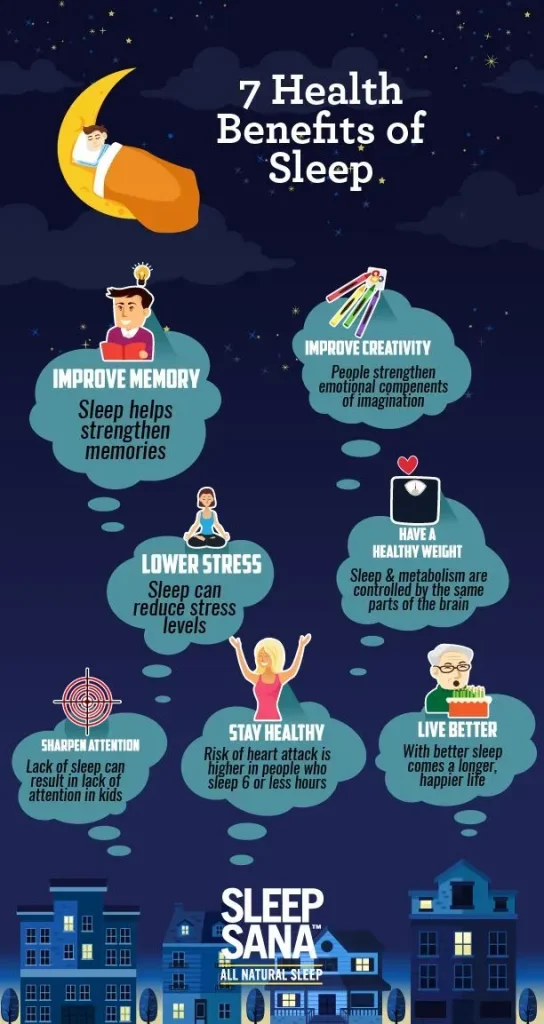In understanding sleep and health, we see how rest shapes mood, energy, and daily performance. This overview highlights how sleep affects health by supporting immune function, metabolism, and brain health. When rest falters, mood, focus, and appetite can falter too. Understanding the importance of sleep for health helps you see why sleep quality benefits extend beyond a single good night. In these opening lines, you’ll discover practical steps to sleep better and live healthier today, plus sleep tips for better health.
Beyond the exact phrase sleep and health, the discussion shifts to rest and wellness, nightly restoration, and a steady circadian rhythm that sustains energy. These related terms—circadian rhythm, restorative sleep, and sleep duration—help explain the same ideas in a way that search engines recognize (LSI) and readers understand. Aligning daily routines, sleep environment, and daytime habits supports immune resilience, mood stability, and metabolic balance over time.
Sleep and Health: Why Sleep Is a Cornerstone of Overall Wellness
Understanding the importance of sleep for health helps explain why sleep is not a luxury but a cornerstone of wellbeing. When you sleep well, your body repairs itself, your brain consolidates memories, and your immune system stays primed to fight illness. The sleep and health relationship spans mood, energy, appetite regulation, and daily performance, underscoring that good sleep is foundational rather than optional.
This section outlines how sleep affects health across bodily systems. By honoring your sleep, you support immune defense, metabolic regulation, and emotional resilience. The science shows that when circadian rhythms stay aligned with your environment, you experience deeper, more restorative sleep and better overall health outcomes; this is a practical reminder that how sleep affects health matters every day.
Sleep Tips for Better Health: Practical Steps to Improve Sleep Quality and Daily Wellbeing
Sleep Tips for Better Health can start with simple, sustainable habits. A consistent sleep schedule, a calming pre-bed routine, and an optimized sleep environment lay the groundwork for better rest. These strategies directly influence the sleep quality benefits you’ll notice, including steadier mood, sharper focus, and faster recovery from daily stress.
Additional strategies address daytime choices that support sleep. Limiting caffeine and alcohol before bed, getting regular daytime exercise, and practicing stress-reducing techniques all contribute to how sleep affects health over weeks and months. By prioritizing these sleep tips for better health, you create a cycle where quality sleep amplifies daytime performance, immune resilience, and metabolic balance.
Frequently Asked Questions
How sleep affects health and why is sleep important for health?
Sleep affects health in multiple bodily systems. When you sleep well, immune defense, metabolic regulation, mood, cognitive function, and cardiovascular health tend to improve; when sleep falters, mood, focus, appetite, and energy can suffer. This highlights the importance of sleep for health. Prioritizing consistent, restorative sleep supports long-term wellbeing and resilience.
What are the sleep quality benefits for health, and what sleep tips for better health can maximize them?
Sleep quality benefits include improved mood, sharper thinking, and stronger immune resilience. To maximize these benefits, try these sleep tips for better health: maintain a consistent schedule, create a wind-down routine, optimize your sleep environment, limit screen time before bed, monitor caffeine and alcohol, get regular daytime exercise, and have lighter meals in the evening. Additional practices like morning light exposure and stress management further support sleep quality and overall health.
| Aspect | Key Points | Impact on Sleep & Health |
|---|---|---|
| Science of Sleep | Sleep cycles through stages; circadian rhythm aligns with light, meals, and activity; alignment yields deeper, more restorative sleep; misalignment (e.g., late screens, irregular schedules) reduces sleep quality. | Supports memory consolidation, physical restoration, and emotional regulation; when schedules are consistent with environment, health outcomes improve. |
| Immune Function | During sleep, the body ramps up cytokines and immune cells; chronic sleep deprivation impairs immune response and vaccine efficacy. | Adequate sleep boosts immune resilience and lowers illness risk (colds, flu) and helps recovery from illness. |
| Metabolic Health & Sleep | Inadequate sleep disrupts hormones that regulate hunger and glucose metabolism; can contribute to weight gain and insulin resistance. | Sufficient sleep supports healthier weight regulation and better glycemic control; central pillar in chronic disease risk management. |
| Mental Health & Sleep | Sleep and mental health are bidirectional: poor sleep amplifies stress, anxiety, and depressive symptoms; adequate sleep supports emotional resilience and cognitive flexibility. | Improves mood, motivation, and cognitive function; untreated sleep problems can worsen mental health conditions. |
| Physical Health & Chronic Disease Risk | Chronic sleep debt is linked to higher blood pressure, inflammation, and cardiovascular risk; potential links to cancer risk via inflammatory pathways. | Long-term sleep debt can influence longevity and overall health through cardiovascular and inflammatory pathways; sleep is part of holistic health. |
| How Much Sleep Do We Need? | Guidelines vary by age: Adults 7-9 hours; Older adults 7-8; Teenagers 8-10; Children may require more; consistency is key. | Meeting sleep needs improves daytime performance, mood, and health outcomes; quality and consistency trump quantity alone. |
| Practical Sleep Strategies | Maintain a consistent schedule; wind-down routine; optimize sleep environment; limit screens; monitor caffeine/alcohol; regular daytime exercise; lighter meals. | These actions directly improve sleep quality and daytime functioning, supporting overall sleep and health. |
| Additional Tips for Sleep Biology & Health | Light exposure in the morning helps circadian alignment; brief naps if needed; manage stress with mindfulness or breathing; reserve the bed for sleep. | Supports smoother sleep onset and maintenance, enhancing long-term sleep and health outcomes. |
| When to Seek Help | If sleep problems persist for weeks, with daytime fatigue, memory issues, or mood changes, consult a healthcare provider or sleep specialist. | Chronic insomnia or suspected sleep disorders like sleep apnea require professional assessment and tailored treatment. |
| Myths About Sleep | Weekend catch-up is not a fix; more sleep isn’t always better; alcohol does not improve sleep quality. | Quality and regularity matter more than sheer duration; debunking myths supports healthier sleep habits. |
| Bottom Line | Regular, high-quality sleep is a foundational pillar of health. | Prioritizing sleep through routines, environment, and daytime habits reduces risk and enhances wellbeing across immune function, metabolism, mental health, and longevity. |
Summary
Sleep and health are deeply interconnected; sleep and health influence immune function, metabolism, mental wellbeing, and chronic disease risk. By prioritizing consistent schedules, a conducive sleep environment, and healthy daytime habits, you can improve not only how well you sleep but also how well you live. The goal isn’t simply more hours in bed but better, more restorative sleep that supports every aspect of your health and daily life. Making sleep a non-negotiable part of your routine is one of the most powerful investments you can make in your long-term wellbeing.


